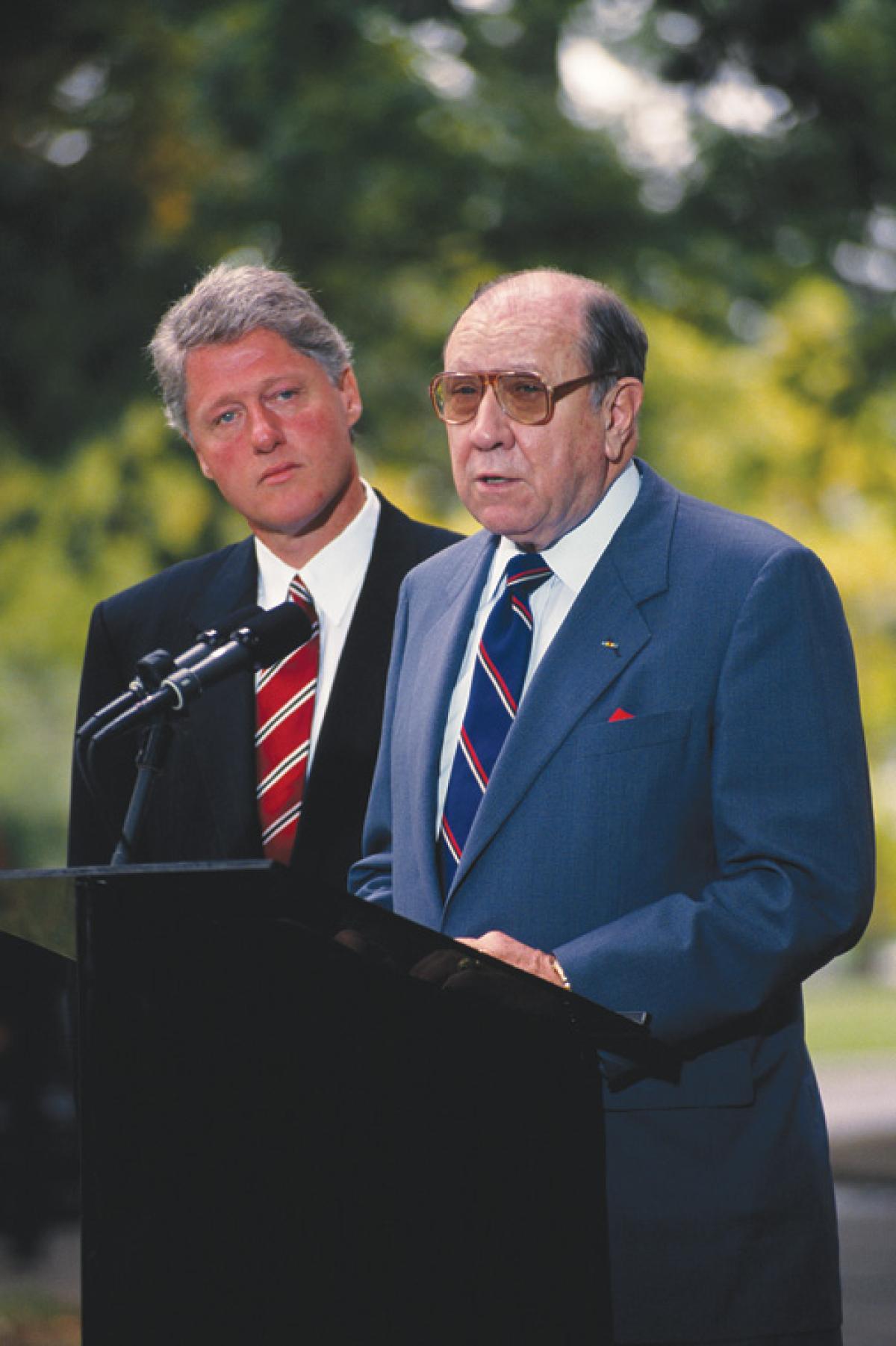With a year to go, the United States is already in the throes of the presidential-election season, and the press is duly running daily (if not hourly) stories on the subject. Like most retired military flag officers, I am deeply interested in the future of our country, specifically national security. Therefore, what role can retired flag officers play in presidential campaigns? Or more important, what role should we play? Officially, we are considered private citizens without restriction to our participation in presidential politics. So what’s the big deal? One specific episode in my career colored my view on this issue.
As a middle-grade officer assigned to the Joint Staff in the early administration of President Bill Clinton, I would often be in meetings attended by both Joint Staff military officers and civilian officials from the Office of the Secretary of Defense (OSD). At one of these an OSD staffer strongly urged agreement for a particular course of action. The senior Joint Staff officer at the meeting stated that the chairman was not going to agree to the proposed position. The OSD rep said, “Well, maybe it’s time we got some Clinton generals in here.” I was aghast at the accusation, and I told her so. “We work for the commander-in-chief, no matter who he or she is at the time.” Her response was equally disturbing: “I don’t know how you could change allegiances. . . . I know I couldn’t.”
How could someone so well educated think there were “Bush generals or Clinton generals?” But then I remembered one of the key endorsements for Clinton during the 1992 campaign came from retired Chairman of the Joint Chiefs Admiral William J. Crowe. I have never met a finer officer and gentleman, but I could see how the public could misunderstand why an admiral was making a public political endorsement of a presidential candidate. Years later, press articles announcing his death still mentioned that Crowe had endorsed Clinton and that later the President appointed him U.S. Ambassador to the Court of St. James’s. Unfortunately, I suspect many construed it as a payoff for a political favor. Those of us who knew the admiral understood that no one was more qualified to be U.S. ambassador to our closest ally.
In my mind, the Crowe endorsement opened the floodgates for future retired flag and general officer political endorsements. Retired Commandant of the Marine Corps General P. X. Kelley made public endorsements for President George W. Bush in 2004. Retired Chairman of the Joint Chiefs General John Shalikashvili spoke at the 2004 Democratic Convention. But by the 2012 presidential campaign we reached a new high (or perhaps low) point, as opposing candidates started referring to the number of retired generals and admirals on their teams, including a full-page advertisement in the Washington Times, listing the well over 300 retired flag and general officers who “Proudly support Governor Mitt Romney as our nation’s next President and Commander-in-Chief.” What’s the issue here? Aren’t retired admirals and generals allowed to publicly endorse presidential candidates? In short, yes we are allowed. But should we? I think not.
We are not merely private citizens after retirement. A colleague once told me that when you are elevated to flag rank in the armed forces, you are an “admiral for life.” I for one do not mind that moniker, but we cannot be so just some of the time. It is difficult for the public to discern the difference between when we are admirals (and generals) and when we are acting purely as private citizens.
As the 2016 election approaches, I humbly propose that we retired flags stay on the sidelines and away from public endorsements of presidential candidates. I fully understand we have the right to participate in these campaigns, but I am convinced it is not the right thing for the country. This plea is not meant to criticize any retired admirals or generals who have made such endorsements in the past. I merely ask that all of us consider the larger ramifications of doing so and settle for being admirals (and generals) for life.
Vice Admiral Crowder is president of Crowder Strategies & Solutions LLC. He retired from the Navy in 2010 after a long and distinguished career, his final assignment being Deputy Chief of Naval Operations for Operations, Plans, and Strategy. He served in several command capacities at sea and was Commander, 7th Fleet.



